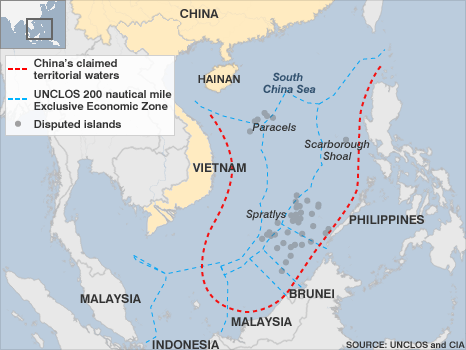CNN reports, encouragingly, that at least some prominent Republicans and Democrats are rushing to his defense against the shameless Israel lobby and others:
In one of its letters the group said, “We write to you, Mr. President, in support of Senator Hagel because we believe our polarized political life is much in need of leaders with the kind of bipartisanship and independence of conscience and mind that Chuck Hagel’s service to our country has exemplified.”
Among its notable members are Former National Security Advisers Zbigniew Brzezinski and Brent Scowcroft, Former Defense Secretary Frank Carlucci, Former Undersecretary of State Thomas Pickering, Former Sens. David Boren, Nancy Kassebaum-Baker and Gary Hart.
To help get its message out the Bipartisan Group in the last few weeks approached the Podesta Group, one of Washington’s leading lobbying and public relations firms, according to a source with knowledge of the situation. Some of the members have been doing television interviews as well to help defend Hagel and his record.
The criticism of Hagel before there is even a formal nomination “is not acceptable” and “unseemly,” according to this source and that is the motivation for the actions by these notable foreign policy veterans – “to show he has a record” and to defend it, this source added. “Premature judging…is unfair.”
Meanwhile, Joe Coscarelli predicts that the fireworks are just getting started:
If you were under the impression that he had already been chosen based on the beating he’s taking in the press — for not loving Israel enough, for calling someone “aggressively gay,” for being the Republican he is and was — then just wait until after the weekend. Then the actual fun begins, although at least Hagel will have the White House really defending him.
The official line today, according to NBC, is that “chatter” about Hagel as Obama’s final decision is “premature,” but the White House did admit he’s a “leading contender.” Other options to replace Leon Panetta after the sinking of Susan Rice included deputy Defense Secretary Ash Carter and Pentagon Under Secretary Michele Flournoy.
But detractors have already aimed squarely at Hagel, as laid out by Foreign Policy:
That campaign has included anonymous Senate aides calling Hagel an anti-Semite, the Washington Post editorial board writing that “Chuck Hagel is not the right choice for defense secretary,” and the Emergency Committee for Israel, which counts among its board members Weekly Standard editor Bill Kristol, running a television ad criticizing Hagel’s opposition to unilateral sanctions against Iran. “For secretary of defense, Chuck Hagel is not a responsible option,” the ad claims.
Related articles
- Sources: Obama to pick Chuck Hagel for secretary of defense (thedailybeast.com)
- FLASHBACK: Engel: Hagel Has ‘Endemic Hostility’ Toward Israel (freebeacon.com)
- Obama expected to nominate Chuck Hagel as secretary of Defense (latimes.com)
- Report: Hagel Worked to Shut Down USO Port in Haifa, Israel (nationalreview.com)
- Obama: Nothing Disqualifies Chuck Hagel (nationalreview.com)

